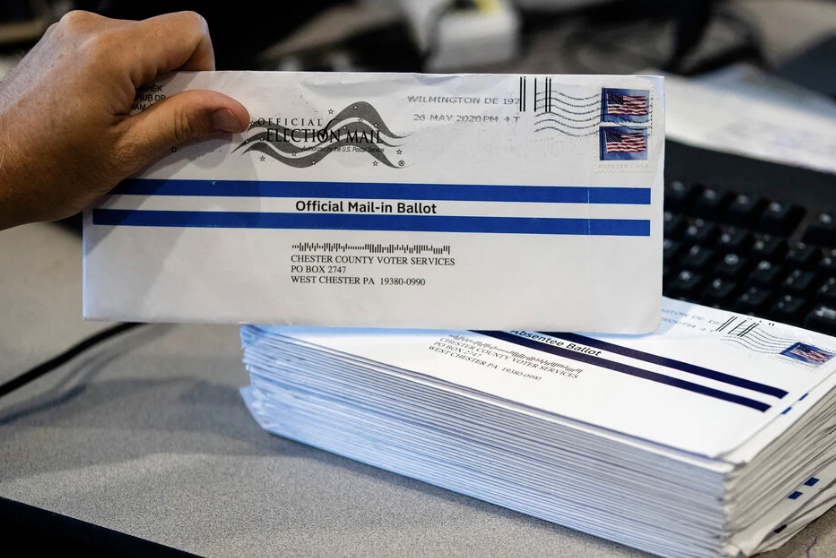Supreme Court Declines Case on Pennsylvania Mail-In Ballot Rules

The Supreme Court has decided not to take up a case brought by civil and voting rights groups challenging Pennsylvania’s rule requiring mail-in ballots to include a handwritten date on the outer envelope.
The groups argued that the requirement is unnecessary and has led to the rejection of valid ballots. However, the justices declined to review a lower court decision that upheld the rule, rejecting claims that it violated federal law, which bars disqualifying ballots over errors that are “not material” to determining a voter’s eligibility.
In 2024, the 3rd U.S. Circuit Court of Appeals in Philadelphia ruled that although the date requirement “serves little apparent purpose”—since it doesn’t help verify if a ballot arrived on time—it is still lawful. The court reasoned that the 1964 Civil Rights Act governs voter registration rules related to eligibility, not the specifics of how a ballot must be submitted for counting.
As a pivotal swing state in presidential elections, Pennsylvania once again played a crucial role last year. President Donald Trump secured the state over his Democratic opponent, former Vice President Kamala Harris, reversing his previous loss to then-President Joe Biden in 2020.
The contested rule affects Pennsylvania’s mail-in voters, who must seal their completed ballots in a secrecy envelope, place it in a return envelope, and then sign and date a declaration on the outer envelope affirming their voting eligibility.
In 2022, plaintiffs including the Pennsylvania State Conference of the NAACP, represented by the American Civil Liberties Union, filed a lawsuit against state and county election officials. They argued that the rule violated the materiality provision of the Civil Rights Act.
This provision states that no one may be denied the right to vote “because of an error or omission on any record or paper relating to any application, registration, or other act requisite to voting if such error or omission is not material in determining whether such individual is qualified under state law to vote.”
A federal judge initially sided with the plaintiffs, ruling that the date requirement had no bearing on voter qualifications or the timeliness of ballots. However, the 3rd Circuit Court later reversed this ruling, prompting the plaintiffs to appeal to the Supreme Court.
In their Supreme Court filing, the plaintiffs argued that the “total lack of relevance” of the date on the outer envelope was undisputed. They added that as mail-in voting becomes more common, the rule disenfranchises “thousands of voters each election, especially seniors of all political stripes,” according to Reuters.
Lawyers for the Republican National Committee and the state GOP, who intervened to defend the date requirement, urged the Supreme Court to reject the appeal. They argued that the rule helps “prevent fraud and protect the integrity of elections.”
Following the November elections, the Pennsylvania Supreme Court took action to stop what it described as efforts by Democrat-led counties to count ballots that had already been deemed illegal under state law.
The ruling came after Democratic officials in Bucks County and other areas expressed plans to tally ballots that failed to meet the state’s legal requirements in a close Senate race between incumbent Democrat Bob Casey and Republican Dave McCormack, a race that the AP eventually called for McCormack.
“I think we all know that precedent by a court doesn’t matter anymore in this country,” said Democratic Bucks County Commissioner Diane Ellis-Marseglia during a vote to count ballots missing the two required outer-envelope signatures. “People violate laws anytime they want. So, for me, if I violate this law, it’s because I want the court to pay attention. There’s nothing more important than counting votes.”
In the end, the matter was resolved, and the counties did not count ballots that were ruled ineligible.